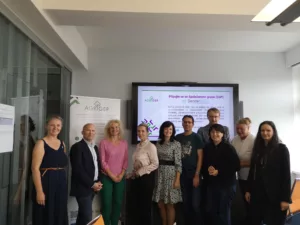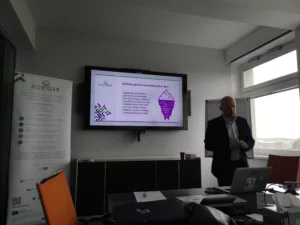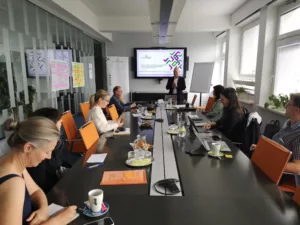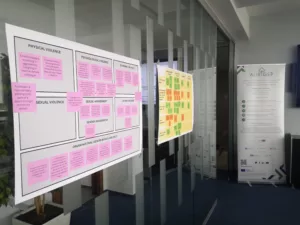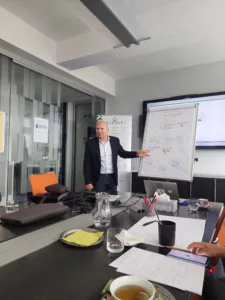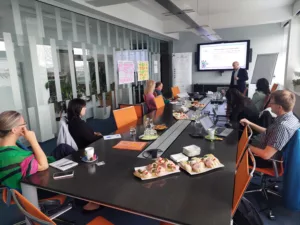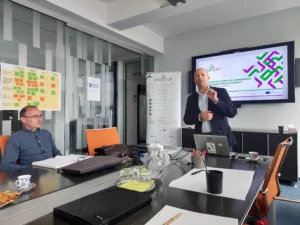Hungarian University of Agriculture
and Life Sciences (MATE)
Julianna Kobolak
info@agrigep.euGender-based violence (GBV) remains a significant issue in academia. Addressing this problem requires understanding its dynamics, effective policies, and robust mechanisms for a safe, inclusive environment.
The recent workshop „How to Combat Gender-Based Violence in Academia,“ led by Dr. Maxime Forest (Yellow Window), provided key insights and practical recommendations for the members of the GEP working group and other actors from faculties and administration. The half-day workshop provided participants with the theoretical framework and extensive space for group work and discussions on current CZU policies and measures in place.
Understanding Gender-Based Violence in Academia GBV in academic settings includes harassment, discrimination, and abuse, creating a hostile environment that impedes academic and professional development. Recognizing GBV and its impact is crucial for creating a safer academic space.
Key Recommendations for Overcoming Barriers Dr. Forest emphasized overcoming institutional and cultural barriers with the following recommendations:
Setting Effective Internal Policies Dr. Forest highlighted essential elements for policy-making:
Implementing Robust Mechanisms, Dr. Forest suggested the following for effective implementation:
Conclusion Combating GBV in academia requires a multifaceted approach of awareness, strong policies, and effective mechanisms. Dr. Forest’s workshop offered a comprehensive guide for creating a safe and inclusive academic environment. Adopting these recommendations and committing to continuous improvement can help eliminate GBV and foster a culture of respect and equality. Please visit our website or contact our support team for more information on upcoming workshops and resources.
